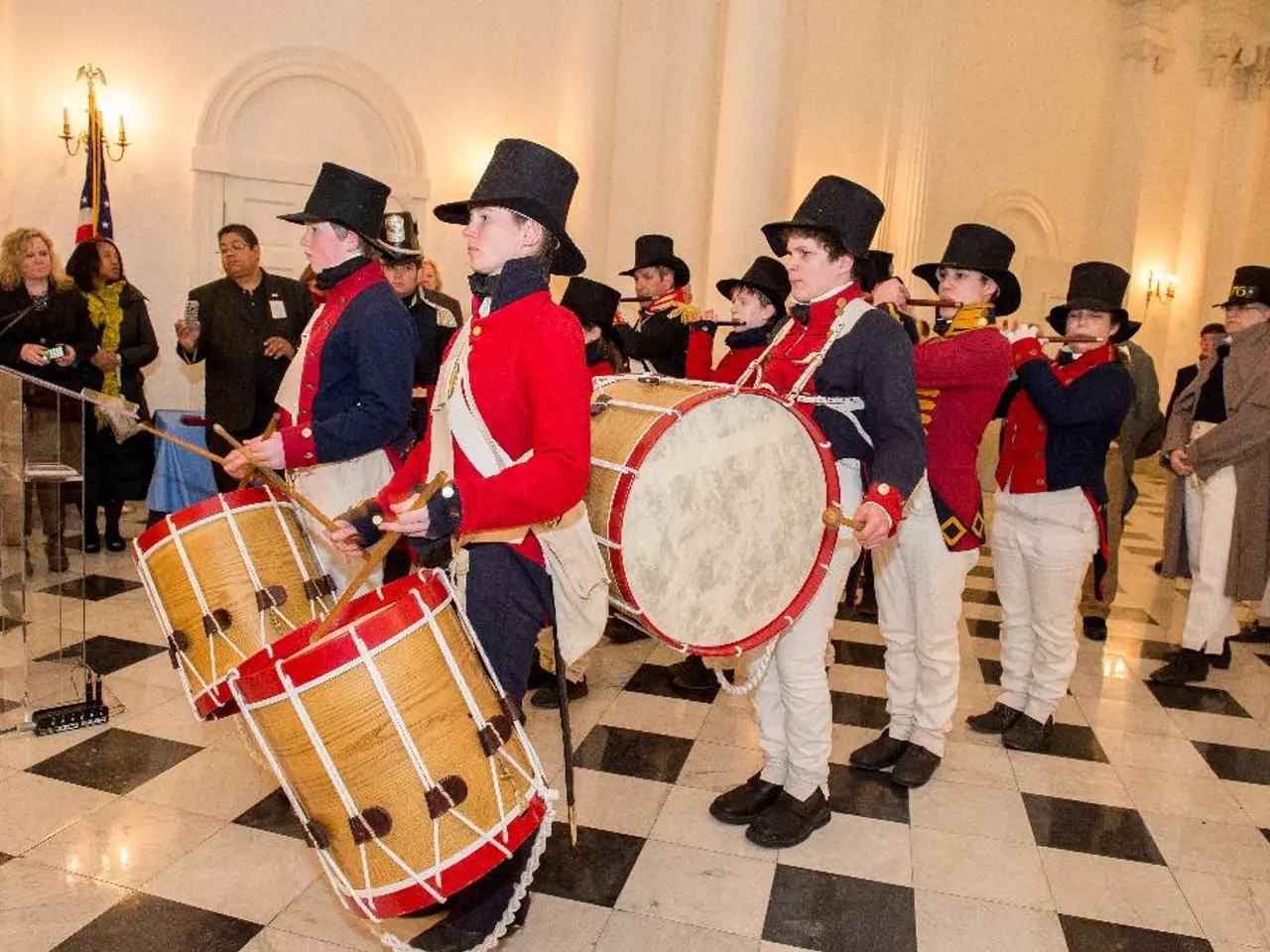Belgian President's Actions Condemned for Perceived Anti-Semitism Following Israel Conductor's Ban by Authorities
In a move that has sparked an international controversy and accusations of anti-Semitism, the Flanders Festival Ghent has canceled a concert by the renowned Munich Philharmonic Orchestra, due to the Israeli conductor, Lahav Shani.
The festival organizers framed the move as a commitment to 'connection and reconciliation,' aligning with Ghent's city council and Flemish cultural groups calling for boycotts of artists linked to the Israeli Government. However, this decision has been met with strong condemnation from various quarters.
Germany's Minister of State for Culture, Wolfram Weimer, and German President Frank-Walter Steinmeier have condemned the decision as anti-Semitic. Weimer called it 'a disgrace for Europe' and 'blatant anti-Semitism,' while Steinmeier described it as 'worrying.'
Bavaria’s Minister of Culture, Markus Blume, described the cancellation as 'gross anti-Semitism.' Alexander Dobrindt, the Federal Minister of the Interior, called the incident 'very, very, very disturbing.' Barbara Klepsch, the President of the Conference of Culture Ministers of the German federal states, criticized the act as a 'taboo breach,' rejecting the idea of judging an artist by nationality or political stance.
The PEN Berlin writers’ association also criticized the festival’s demand that Shani clarify his political views before performing, calling it a violation of freedom of expression and a form of ideological coercion typical of authoritarian regimes.
The European Commission expressed 'deep concern' on September 12, noting that banning artists based on nationality violates European Union values. The European Jewish Association demanded Gennez's sacking, accusing her of 'emboldening anti-Semitic currents.'
Shani, the 36-year-old Tel Aviv-born maestro set to lead the Munich Philharmonic as chief conductor from 2026, has made public statements on the need for peace and co-operation between Israel and Palestine. His stance regarding Israel's actions in Gaza was a concern cited by the festival.
Two members of De Wever's centre-right N-VA party announced they would leave the board of directors of the festival, saying the cancellation was discriminatory in nature and that they could not support racism. De Wever himself has entered the debate, trying to salvage Belgium's international image and condemning the decision as a blow to artistic freedom.
Belgian Prime Minister Bart De Wever has expressed his fear that the Israeli government would allow itself to be drawn into an endless violent conflict. In a Twitter post on September 13, he stated, 'We must not let ourselves be dragged into an endless violent conflict.'
In a positive gesture amid the controversy, the German Philharmonic invited Shani to perform as a gesture of solidarity. Shani received a standing ovation at the end of the performance in Berlin.
German Chancellor Friedrich Merz praised De Wever's support for Shani on September 14 as a 'strong sign' against anti-Semitism. Merz noted that no other organisation in Europe supported the move.
The decision by the Flanders Festival Ghent has ignited a heated debate, with calls for reconciliation and artistic freedom on one side, and accusations of anti-Semitism on the other. The incident serves as a reminder of the complexities and sensitivities involved in issues of nationality, politics, and artistic expression.
Read also:
- United States tariffs pose a threat to India, necessitating the recruitment of adept negotiators or strategists, similar to those who had influenced Trump's decisions.
- Weekly happenings in the German Federal Parliament (Bundestag)
- Southwest region's most popular posts, accompanied by an inquiry:
- Discussion between Putin and Trump in Alaska could potentially overshadow Ukraine's concerns








